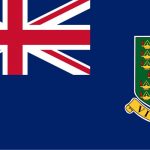Chinese Civil Settlement Statements: Enforceable in Singapore?
Key takeaways:
- In July 2016, the Singapore High Court refused to grant summary judgment to enforce a Chinese civil settlement statement, citing uncertainty about the nature of such settlement statements, also known as ‘mediation judgments’ (Shi Wen Yue v Shi Minjiu & Anor [2016] SGHC 137).
- It is interesting to note that in the first instance, the Singapore Assistant Registrar granted summary judgment in favor of the judgment creditor, holding that a Chinese civil settlement statement (which was translated as a “mediation paper” in this case) was not a judgment, but was enforceable as an agreement (Shi Wen Yue v Shi Minjiu & Anor [2016] SGHCR 8).
- In the absence of a final decision by the Singapore court on the nature (including the question of enforceability) of the Chinese Civil Settlement Statements, we are unable to conclude whether they are enforceable in Singapore.
- In this case, the Singapore court differs from its Canadian and Australian counterparts on the nature of the civil settlement statement, the latter holding that a civil settlement statement is equivalent to a Chinese judgment.
- Under Chinese law, civil settlement statements are made by Chinese courts upon the settlement arrangement reached by the parties and do enjoy the same enforceability as the court judgments.
In June 2016, the Assistant Registrar of the Singapore High Court granted summary judgment in favor of the judgment creditor to enforce a civil settlement statement issued by the Zhoushan City Intermediate Court in Zhejiang Province, China (see Shi Wen Yue v Shi Minjiu & Anor [2016] SGHCR 8). In the view of the Assistant Registrar, a Chinese civil settlement statement was not a judgment, but was enforceable as an agreement.
One month later, however, the Singapore High Court allowed the appeal, refusing to grant summary judgment to enforce the Chinese civil settlement statement, citing uncertainty about the nature of such settlement statements (see Shi Wen Yue v Shi Minjiu & Anor [2016] SGHC 137).
Please note that a civil settlement statement (in Chinese: 民事调解书 (Min Shi Tiao Jie Shu)), also known as a “civil mediation judgment” or “civil mediation paper”, has been translated as ‘mediation paper’ in this case.
It is noteworthy that the appeal was allowed because the Singapore High Court agreed with the appellants that there were triable issues. However, the subsequent Singapore litigation did not result in a substantive decision by the Singapore court. This may be due to a settlement between the parties.
In the absence of a final decision by the Singapore court on the nature (including the question of enforceability) of the Chinese Civil Settlement Statements, we are unable to conclude whether they are enforceable in Singapore.
Related Posts:
- Canadian Court Enforces Chinese Civil Settlement Statement/Mediation Judgment in 2019
- The First Time Australia Recognizes Chinese Civil Settlement Statements
I. Case background
Creditor Shi Wen Yue loaned CNY 9.3 million to debtor Zhuoshan Xiao Qi Xin Rong Investment Pte Ltd (“the Company”). Shi Minjiu, a shareholder of the Company, assumed guarantee responsibility for the Company’s loan from the creditor. Shi Minjiu is married to Fan Yi.
As the two debtors failed to repay the loan to the creditor, the creditor filed a lawsuit against them in a primary court in Zhoushan City, demanding repayment of the loan. Subsequently, the primary court rendered a first-instance judgment ordering the two debtors to repay the loan amount of CNY 2,173,634 and pay interest until 30 June 2014. If the debtors failed to fulfill the obligations under the judgment, they would also be liable to pay penalty interest.
The two debtors appealed to the Zhoushan Intermediate People’s Court. During the appeal, the parties signed a settlement agreement on 3 Mar. 2015, which included an installment payment plan. The Zhoushan Intermediate People’s Court also issued a Civil Settlement Statement (“the Mediation Paper”).
Since the two debtors did not make the first installment payment as per the agreed plan on 30 Mar. 2015, the creditor initiated enforcement proceedings before the Chinese court on 1 Apr. 2015.
On 3 July 2015, the creditor filed a lawsuit in the Singapore High Court against one of the debtors, Shi Minjiu, and his wife, Fan Yi, seeking recognition and enforcement of the Mediation Paper as a Chinese judgment in Singapore, and applied for summary judgment.
Meanwhile, the two debtors filed for retrial in Chinese courts, requesting the court to set aside the Mediation Paper.
II. First instance in Singapore
In the first instance in Singapore, the disputed issue was whether the Mediation Paper issued by the Chinese court was a judgment and whether it could be enforced in Singapore.
The plaintiff argued that the Mediation Paper is a final and conclusive judgment under Chinese law. Even if the Mediation Paper is not a judgment but is simply an agreement, the defendants had no defense because it is undisputed that the defendants owed the sums. The defendants argued that the Mediation Paper was not a judgment under Chinese law, and under the terms of the Mediation Paper the plaintiff could only enforce the same in China.
(1) Is the Mediation Paper a judgment?
The Assistant Registrar held that a mediation paper under the Chinese Civil Procedure Law is an instance of a civil law judicial settlement which is neither a judgment nor a bare agreement, but something in between that is sui generis.
Assistant Registrar went on to point out that Singapore is a signatory to the Convention of 30 June 2005 on Choice of Court Agreements (“the Hague Convention”), under which judicial settlements are to be enforced in the same manner and to the same extent as a judgment. Nevertheless, it is perplexing that the Assistant Registrar further opined that the mediation paper is not a judgment.
(2) Can the Mediation Paper be enforced outside of China?
The Assistant Registrar held that Mediation Paper was not a judgment, but the Mediation Paper was enforceable as an agreement because the appellants did not have a viable defence to the claim. He therefore granted summary judgment in favour of the plaintiff, less sums already received from enforcement proceedings in China.
III. Second instance in Singapore
Shi Minjiu and Fan Yi, who were the defendants in the first instance, appealed, arguing that the case should not be subject to summary judgment as there were triable issues. The triable issues included:
(a) Whether the Mediation Paper was a judgment;
(b) Whether the Mediation Paper could be enforced overseas concurrently; and
(c) Whether the Mediation Paper was liable to be set aside.
The judge opined that the question of whether a mediation paper can be enforced outside of China is indeed debatable. Therefore, the case should not be determined summarily.
IV. Our comments
Under Chinese law, civil settlement statements are made by Chinese courts upon the settlement arrangement reached by the parties and do enjoy the same enforceability as the court judgments.
For this very case, in the absence of a final decision by the Singapore court on the nature (including the question of enforceability) of the Chinese Civil Settlement Statements, we are unable to conclude whether they are enforceable in Singapore.
However, Chinese civil settlement statements have been recognized and enforced in Canada and Australia:
In April 2019, in the case of Wei v Li, 2019 BCCA 114, the Court of Appeal for British Columbia upheld the trial ruling to enforce a Chinese civil settlement statement (See “Canadian Court Enforces Chinese Civil Settlement Statement/Mediation Judgment in 2019”).
In June 2022, in the case of Bank of China Limited v Chen [2022] NSWSC 749, the New South Wales Supreme Court of Australia ruled to recognize two Chinese civil settlement statements, marking the first time that Chinese settlement statements have been recognized by Australian courts (See “The First Time Australia Recognizes Chinese Civil Settlement Statements”).
If the issue of enforcing a Chinese civil settlement statement in Singapore arises, these two cases may be used to persuade Singaporean judges to accept the views of Canadian and Australian judges.
Related Posts:
- Canadian Court Enforces Chinese Civil Settlement Statement/Mediation Judgment in 2019
- The First Time Australia Recognizes Chinese Civil Settlement Statements
Photo by Meriç Dağlı on Unsplash








